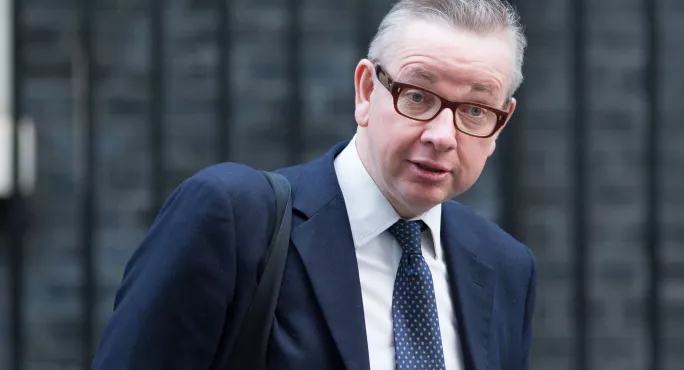- Home
- The Gove gang are back in business
The Gove gang are back in business

Much was made last month about the appointment of Gavin Williamson as education secretary. A relative unknown in the world of schools policy, the best most people could come up with was a few jokes about leaking exam results.
Indeed, we still know almost nothing about his education agenda (if he has one) apart from a few vague statements about standards and that he will be apparently focusing on the “three Fs”: funding, free schools and further education.
Veteran Department for Education watchers (sad sods such as me) will be interested to hear who will be appointed as special advisers, as such appointments can sometimes tell you something about what the education sector can expect from Whitehall. Rumours suggest that there will be at least one FE expert in Williamson’s private office, which makes sense given that we’re staring down the barrel of the post-Brexit skills deficit and the imminent arrival of the ever-controversial T levels.
Is it possible, however, that we’re all looking in the wrong place for clues as to this government’s future schools policy? I think so.
It would seem that the pendulum of education power on Whitehall is in the process of swinging back to No 10.
The appointments of former Gove adviser and Brexit bogeyman Dominic Cummings (you may have heard of him?) as Boris Johnson’s de facto chief of staff, the former deputy London mayor for education Munira Mirza as head of policy in Downing Street and former Gove speechwriter and City Hall free school boss Elena Narozanski as No 10 head of education all hint at education being a very major priority for Boris if he can ever rid himself of this pesky Brexit problem.
(And that’s before we ever begin to interrogate the appointment of Gove himself as chancellor of the duchy of Lancaster in the cabinet office, where he is an all-powerful orchestrator of cross-departmental government policy. This is a cabinet role that has, in recent years, become increasingly influential.)
This is a web of connected right-leaning educationalists who are committed to school reform, free schools, academisation and traditional curriculum and pedagogy.
If you take Mirza as an example: while she has never worked directly for Gove, she is on the advisory council of Parents and Teachers for Excellence, the group that lobbies for traditional standards in schools, set up by former Gove and No 10 adviser Rachel Wolf, who in turn set up Public First, a Whitehall consultancy that until earlier this month employed Narozanski as a consultant. Narozanski, of course, worked with Mirza at City Hall, after having worked for Gove in the DfE with Cummings.
This group has strong links to Policy Exchange, the think tank that Gove founded while in opposition, in which Sam Freedman, another former Gove adviser, Jonathan Simons, and Narozanski did much of the heavy policy lifting around areas such as free schools. And where does Simons work now? Public First.
These are just some of the many links between this group of people, who have worked together in various settings for many years.
To be clear, I am not criticising any of these individuals. Given that they are in large-part Westminster policy wonks and bag carriers, their commitment to education in the long term, whether you approve of their policies and their philosophies or not, is unusually lengthy, in-depth and dedicated.
What I am saying, however, is that in the aftermath of May’s botched election and the downfall of her all-powerful adviser, Nick Timothy, the chief architect of her grammar school policy, the DfE and the then education secretary Damian Hinds were largely left to it, with only marginal input or influence from either No 10 or Gove’s diaspora of supporters. The latter are now back.
If I were Williamson I wouldn’t expect much interference from No 10 until Brexit is sorted, or at least the crisis is in abeyance. If that ever happens (what an if), and Boris’s administration survives (another huge if), Williamson can expect a lot of direction from The Centre. Gove’s gang of trads are once again in the ascendant.
Keep reading for just £1 per month
You've reached your limit of free articles this month. Subscribe for £1 per month for three months and get:
- Unlimited access to all Tes magazine content
- Exclusive subscriber-only stories
- Award-winning email newsletters



